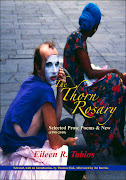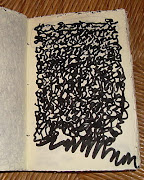BABAYLANISM
OurOwnVoice's newest issue is rather historic by focusing on the Babaylan.
I've got three poems innit, which isn't the most important detail but which I note for moi Blog-File ("Hay(na)ku with Ducktail for Leny", "The Hundredth Monkey Phenomenon," and "Sacred Time"). Again for the Blog-File, I also have the novel "Dear Cloud" innit.
Having gotten Housekeeping out of the way, I found this essay by Cynthia Arias, "An American Babaylan: Living in One's Own Truth" quite useful. It's useful because modern-day Babaylanism is controversial in some circles as people grapple with the effect of the diaspora (and the resultant separation from "land"). Anyway, here's some excerpts from Arias' essay:
The concept that the Babaylan is defined by factors that override an individual’s direct experience of the originating land, the Philippine Islands, is vital to understanding the presence of the Babaylan in the Diaspora and the ways that sacred practices of the Babaylan have, as well, bridged the seas of consciousness that Pilipinos have traversed in their journeys around the world.
...
If we accept that Culture is a human construct, by which a group of individuals agree basic concepts of values, morals, mores to form a worldview, then it follows that Culture evolves as humans evolve.
...
While many may provide their perspectives, and assist in our discoveries, through critical analysis founded in scientific methodology, it is up to us to decide who we are and where we are headed.
Modern-day Babaylanism is empowering.
The Babaylan Conference, which seeded this issue, also empowered Mom to write her first book (which I'm reviewing now). But here is also one of her narratives, a memoir from 1939 entitled "Dawac". Good for Mom!
Also useful is the essay "Ways of the Babaylan" by Katrin de Guia. It's clear from her essay that empathizing/understanding (in my opinion, if you understand Babaylanism, understanding cannot occur without empathizing) cannot occur without that thing that many folks are scared to discuss: love. I do think Ben Okri's quote relevant: "Only those who truly love and who are truly strong can sustain their lives as a dream. You dwell in your own enchantment. Life throws stones at you, but your love and your dream change those stones into the flowers of discovery."
It takes courage to love as a Babaylan would/does. For, as de Guia puts it, "The first priority of the babaylan is the community."
I appreciate Babaylanism because it requires intelligent innocence.



No comments:
Post a Comment